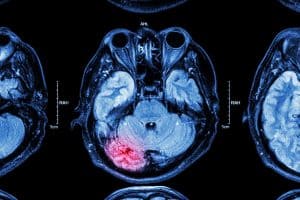 Children who suffer a traumatic brain injury due to a car accident or other causes need a lot of help to lead a normal life. Part of the normalcy plan should include having the child return to school. Research from the Model Systems Knowledge Transfer Center reviews many of the problems of possible solutions. The return-to-school strategy generally involves the guidance and help from many different people. This includes parents, teachers, school counselors, and medical professionals. Often, parents need to be prepared to aggressively fight for the child’s rights.
Children who suffer a traumatic brain injury due to a car accident or other causes need a lot of help to lead a normal life. Part of the normalcy plan should include having the child return to school. Research from the Model Systems Knowledge Transfer Center reviews many of the problems of possible solutions. The return-to-school strategy generally involves the guidance and help from many different people. This includes parents, teachers, school counselors, and medical professionals. Often, parents need to be prepared to aggressively fight for the child’s rights.
How a traumatic brain injury affects a student
Every student, every person, reacts differently to a TBI depending on the amount of physical damage. Common problems TBI victims face include:
- Cognitive difficulties. Difficulty with learning new knowledge, speaking, focusing, and forgetting are just a few examples.
- Physical problems. Students who have a TBI get headaches, are often extra-sensitive to light and noise, and are slow to respond.
- Emotional changes. Students may have difficulty coping with changes. Many may suffer from depression and anxiety.
TBI victims may also be irritable or frustrated, or exhibit signs of anger.
The return to school strategy
Family and health providers should begin by:
- Contacting school staff to review how the student can prepare/learn before physically returning to school.
- Understanding what programs the school has to help people with disabilities. School districts are required to have some type of special education program, or to make arrangements for students who cannot be helped in their home district.
- Understanding the laws that help disabled students:
- The Individuals with Disabilities Education Improvement Act of 2004. This law is aimed at developing programs that are unique for each student. The programs should help the student prepare for a job and to live independently.
- The Rehabilitation Act – Section 504. An additional program to help students when IDEA may not be sufficient
- ADA, the Americans with Disabilities Act. Students with TBI should not suffer discrimination, and are protected by the law if they do.
Additional ways schools can help students are:
- Schools should have an assessment of the student’s cognitive abilities before the accident. This baseline should be compared to the child’s current abilities.
- Rehabilitation professionals should review the best course of action for the student in school and outside of school, so the child is placed in the right classroom.
- Some of the questions that a neurologist or other relevant professionals should review are:
- The child’s social, physical, and cognitive skills
- What problems are likely to arise
- How can teachers and others help the child focus and learn
- What is needed to help the child advance to the next grade
Parents generally have the right to choose which classroom environment is right for their child. The child’s progress should be routinely monitored to see if the child is adjusting or is overwhelmed.
Understand, too, that your child’s rights are protected by federal laws. If your child’s disability is not handled correctly, or if a school refuses to provide accommodations, then you have the right to make a claim against that school the district, or the personnel in charge of such decisions.
Our Nashville TBI lawyers understand how extremely difficult it can be for survivors to lead a normal life. At the Rocky McElhaney Law Firm, we work with a team of professionals to help your child needs. Our Gladiators in Suits fight to get you every dollar you deserve. This includes anticipating all the long-term medical and social care traumatic brain injury victims require. For help now, please call us at 615-246-5549 or use our contact form to schedule a consultation. We represent clients from Nashville, Hendersonville, Knoxville, and across Tennessee.
